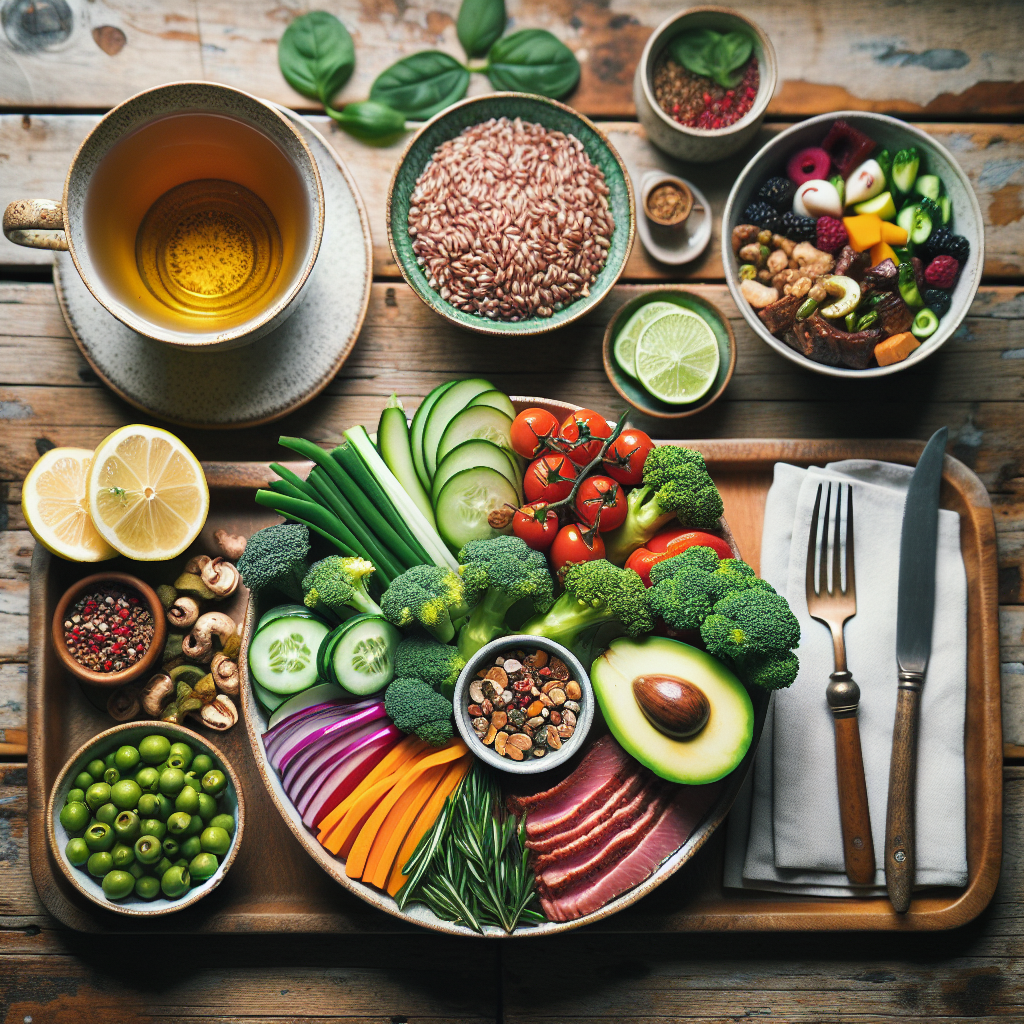Have you ever wondered why some people seem to eat whatever they want and stay energized, while others feel sluggish despite following strict diets? The answer might lie in understanding your body’s baseline energy needs—something we call Basal Metabolic Rate, or BMR. But what if I told you that this modern scientific concept shares remarkable similarities with an ancient understanding of energy that’s been guiding health practices for over 2,000 years?
Your BMR represents the number of calories your body burns just to keep you alive—powering your heartbeat, breathing, digestion, and even maintaining your body temperature. It’s like your body’s energy bill for simply existing. In fact, your BMR accounts for 60% to 70% of all the energy your body uses throughout the day. That’s a substantial amount! Understanding this fundamental aspect of your metabolism can be transformative for anyone seeking to maintain a healthy lifestyle, manage weight effectively, or simply feel more vibrant in their daily life.
For health-conscious individuals, knowing your BMR isn’t just about counting calories—it’s about understanding your body’s unique energy blueprint. This knowledge empowers you to make informed decisions about nutrition, exercise, and lifestyle choices that align with your body’s actual needs rather than following generic advice that might not work for you. Think of it as discovering your body’s personal energy signature, a baseline from which all your wellness decisions can flow more naturally and effectively.
But here’s where things get truly fascinating. Long before we had bmr calculators and metabolic testing equipment, practitioners of traditional Chinese medicine understood that the body operates on a fundamental energy principle. They called this life force “Qi” (pronounced “chee“), and they recognized that when this energy flows smoothly and abundantly, health flourishes. When it becomes blocked, stagnant, or deficient, problems arise.
The Ancient Concept of Qi: Your Body’s Vital Energy
In Traditional Chinese Medicine, Qi is far more than just an abstract spiritual concept—it’s the fundamental force that animates every cell, organ, and system in your body. Imagine Qi as an invisible current flowing through established pathways called meridians, much like rivers running through the landscape of your body. This life force energy is responsible for everything from your immune function to your digestion, from your mental clarity to your physical stamina.
Traditional Chinese medicine views Qi as the bridge between the tangible and intangible aspects of health. It’s the energy that transforms the food you eat into nourishment, the air you breathe into vitality, and your thoughts into action. When Qi flows freely and abundantly, you experience what practitioners describe as harmony—a state where your body, mind, and spirit work together seamlessly.
The role of Qi in promoting balance and harmony cannot be overstated. In the Eastern wellness tradition, disease doesn’t just happen randomly—it emerges when Qi becomes disrupted. This disruption can manifest in several ways: Qi can become deficient (too little energy), stagnant (blocked flow), or excessive (too much energy in the wrong places). Each of these imbalances creates specific patterns of symptoms that Traditional Chinese Medicine practitioners have been recognizing and treating for millennia.
Think about how you feel after a restful night’s sleep versus after tossing and turning. The difference isn’t just psychological—it’s energetic. Quality sleep allows your body to replenish its Qi reserves, much like recharging a battery. Similarly, consider how certain foods leave you feeling light and energized while others make you feel heavy and sluggish. This isn’t just about calories or macronutrients—it’s about how well your body can transform that food into usable Qi.
The beauty of the Qi concept is that it acknowledges what modern medicine is only beginning to fully appreciate: that the body is an interconnected system where everything affects everything else. Your digestive health influences your energy levels. Your stress levels impact your immune function. Your sleep quality affects your metabolism. Traditional Chinese Medicine understood these connections thousands of years ago by observing how Qi flows—or fails to flow—throughout these interconnected systems.
Where Ancient Wisdom Meets Modern Science
Now here’s where our understanding of BMR and the ancient concept of Qi begin to converge in fascinating ways. While they come from entirely different traditions—one rooted in modern physiology and the other in ancient observation and experience—they’re both describing the same fundamental truth: your body operates on energy, and the efficiency of that energy system determines your health and vitality.
Your BMR essentially measures your body’s baseline energy expenditure—the fuel required to keep all your systems running. Similarly, Qi represents the vital energy that powers these same bodily functions. When your Qi flows optimally, your body operates more efficiently, converting nutrients into energy more effectively, eliminating waste products more completely, and maintaining balance across all systems. This efficiency is remarkably similar to what happens when your metabolic rate functions optimally.
Consider this intriguing connection: Traditional Chinese Medicine has long held that blockages in Qi flow lead to health problems. Modern research on metabolism shows that metabolic dysfunction—essentially an inefficient energy system—underlies many chronic health conditions from digestive issues to fatigue. Could stagnant Qi and sluggish metabolism be two different ways of describing the same physiological reality?
The parallels become even more compelling when we examine specific patterns. In Traditional Chinese Medicine, “Qi deficiency” manifests as persistent fatigue, weak digestion, brain fog, and low motivation—symptoms that remarkably mirror what happens when someone’s metabolic rate is suppressed or their body isn’t efficiently converting food into energy. The ancient practitioners were observing metabolic dysfunction through a different lens, but their insights remain profoundly relevant.
What’s particularly exciting is that practices designed to enhance Qi flow often demonstrate measurable effects on metabolic function. Research has shown that traditional practices like Qigong—gentle movements specifically designed to cultivate and balance Qi—can influence cellular energy production, oxygen exchange, and even nerve signaling. These are the very mechanisms that underlie metabolic health in modern scientific terms.
This convergence suggests something powerful: perhaps the most effective approach to optimizing your metabolism isn’t choosing between ancient wisdom and modern science, but rather integrating both perspectives. Your bmr calculator gives you quantifiable data about your energy needs. Understanding Qi flow helps you recognize the qualitative aspects—how energy moves through your body, where it might be blocked, and how different practices and foods affect your overall vitality.
Think of it this way: if your BMR tells you how much fuel your engine needs, understanding your Qi helps you recognize when that engine is running smoothly versus when it’s sputtering and struggling. Both pieces of information are valuable, and together they provide a more complete picture of your metabolic health than either could alone.
Practical Steps: Harmonizing Your Metabolism from Both Perspectives
So how can you actually use this integrated understanding to improve your health and vitality? Let’s start with the practical application of BMR calculations, then explore how traditional Qi-enhancing practices can complement and amplify your results.
First, using a bmr calculator gives you a personalized baseline for your energy needs. This isn’t about obsessively counting every calorie—it’s about understanding your body’s fundamental requirements. Once you know your BMR, you can adjust your caloric intake based on your activity level and goals. If you’re trying to maintain your current weight, you’ll need to consume your BMR plus the calories burned through daily activities. If you’re looking to lose weight gradually and sustainably, you might create a modest deficit. If you’re highly active or looking to build muscle, you’ll need to consume more.
But here’s what many people miss: knowing your BMR is just the starting point. The quality of the calories you consume matters enormously, both for metabolic efficiency and for Qi cultivation. In Traditional Chinese Medicine, food is considered medicine, and different foods have different energetic properties. This isn’t mystical thinking—it’s an ancient recognition that foods affect your body in ways beyond their caloric or nutritional content.
For example, warm, cooked foods are generally easier for your digestive system to process, requiring less energy expenditure and creating less stress on your body’s Qi reserves. Cold, raw foods—while nutrient-dense—require more digestive fire to break down. If your Qi is already deficient (you’re experiencing fatigue, weak digestion, or low energy), emphasizing easier-to-digest, warming foods can help preserve your energy for other bodily functions, effectively supporting metabolic efficiency.
Now let’s talk about movement. Your BMR represents your resting metabolic rate, but physical activity significantly impacts your total daily energy expenditure. However, not all movement affects your metabolism in the same way. Intense exercise burns calories during the activity but can stress your system if overdone. Gentle, mindful movement practices like Tai Chi or Qigong offer a different approach.
These ancient practices are specifically designed to enhance Qi flow throughout your body’s meridian system. They work on breaking down energy blockages and promoting the free circulation of vital energy through gentle, flowing movements combined with focused breathing and mental intention. Research suggests that regular practice of Qigong can influence cellular energy production—the very foundation of metabolic function. These practices don’t burn massive calories in the moment, but they optimize how efficiently your body uses energy over time.
Acupuncture represents another powerful tool for addressing both metabolic sluggishness and Qi stagnation. This time-tested modality works by stimulating specific points along your body’s meridian pathways, helping to restore proper energy flow. Many people seeking support for weight management, digestive issues, or chronic fatigue have found that acupuncture complements their other wellness efforts by addressing the energetic imbalances underlying these conditions.
Quality sleep deserves special mention in any discussion of metabolism and Qi. Your body uses sleep time to restore its Qi reserves and to regulate metabolic hormones that control hunger, satiety, and energy utilization. Insufficient or poor-quality sleep disrupts both your Qi balance and your metabolic function, making it harder to maintain a healthy weight and energy level regardless of how carefully you calculate your caloric needs.
Consider incorporating stress-reduction practices into your daily routine as well. Chronic stress depletes Qi and disrupts metabolic function through elevated cortisol and other stress hormones. Meditation, deep breathing exercises, and spending time in nature all help restore harmony to your energy system, supporting both metabolic health and Qi balance.
Your Path Forward: Personalized Wellness Through Integrated Wisdom
As we’ve explored throughout this article, your body’s energy system is both elegantly simple and beautifully complex. The modern concept of BMR and the ancient understanding of Qi aren’t competing explanations—they’re complementary perspectives on the same fundamental truth: your vitality depends on how well energy flows through your system.
The most empowering approach to wellness combines these insights. Use tools like a bmr calculator to understand your body’s quantitative energy needs. This data provides a foundation for making informed decisions about nutrition and activity levels. But don’t stop there. Pay attention to the qualitative aspects of your energy—how you feel, where you sense blockages or sluggishness, and which foods and practices make you feel truly vibrant versus just temporarily full.
This integrated approach recognizes what both ancient wisdom traditions and modern science increasingly affirm: each person’s body is unique. There’s no one-size-fits-all solution to metabolic health or energetic balance. Your constitution, your life circumstances, your stress levels, your sleep patterns, your emotional state—all of these factors influence both your metabolic function and your Qi flow.
This is where personalized wellness guidance becomes invaluable. Platforms like HerbalsZen are pioneering this integration of ancient Eastern wisdom with modern technology. By combining 2,000 years of Traditional Chinese Medicine knowledge—including Five Elements theory, Yin-Yang balance, and body constitution analysis—with artificial intelligence, it’s now possible to receive truly personalized recommendations that honor both your body’s measurable needs and its energetic patterns.
Imagine having access to wellness guidance that doesn’t just tell you how many calories to eat, but understands your unique constitution and can recommend specific foods that support your particular pattern of Qi flow. Envision receiving lifestyle suggestions tailored not just to your activity level, but to your body’s current state of balance or imbalance according to Eastern medicine principles.
This fusion of ancient wisdom and innovative technology represents the future of personalized wellness—one that respects the time-tested insights of traditional practices while leveraging modern tools to deliver them more effectively and accessibly than ever before. It’s an approach that sees you not as a generic body with standardized needs, but as a unique individual with specific requirements for achieving optimal balance, vitality, and health.
Your journey to better metabolic health and enhanced energy doesn’t have to be a frustrating cycle of trying one generic diet after another. By understanding both your BMR and your body’s energetic patterns, by addressing both the quantitative and qualitative aspects of your wellness, you can discover an approach that actually works for your unique constitution—one that leaves you feeling not just lighter or more energetic, but truly balanced, harmonious, and vibrantly alive.
The wisdom you need has existed for thousands of years. The technology to personalize it for your unique needs exists now. The question is: are you ready to explore what becomes possible when ancient insights meet modern innovation in service of your wellness?




